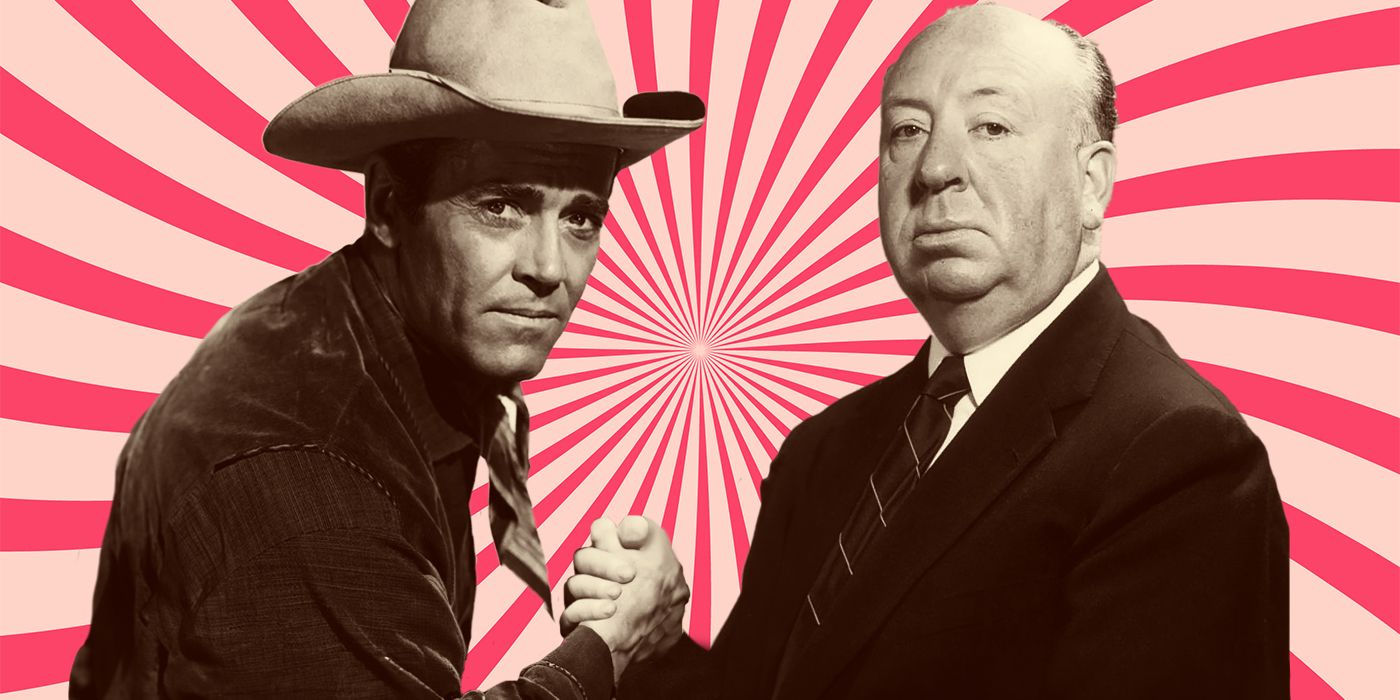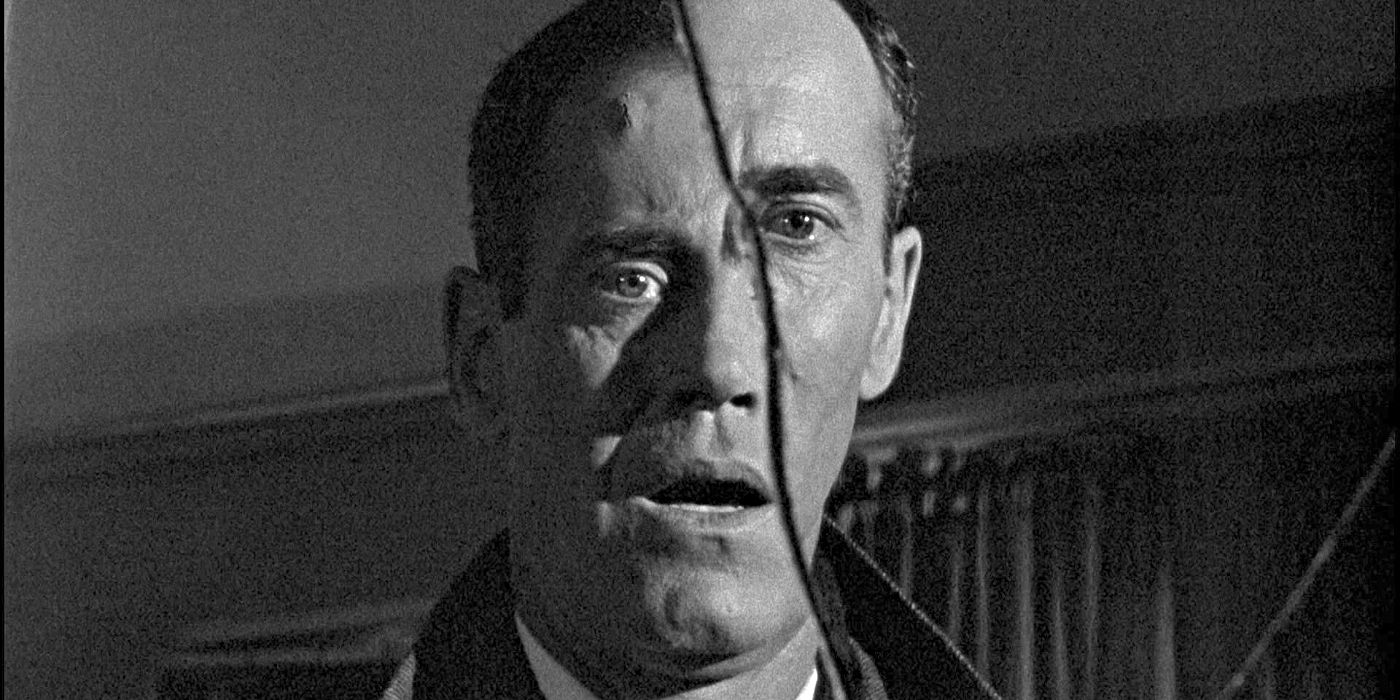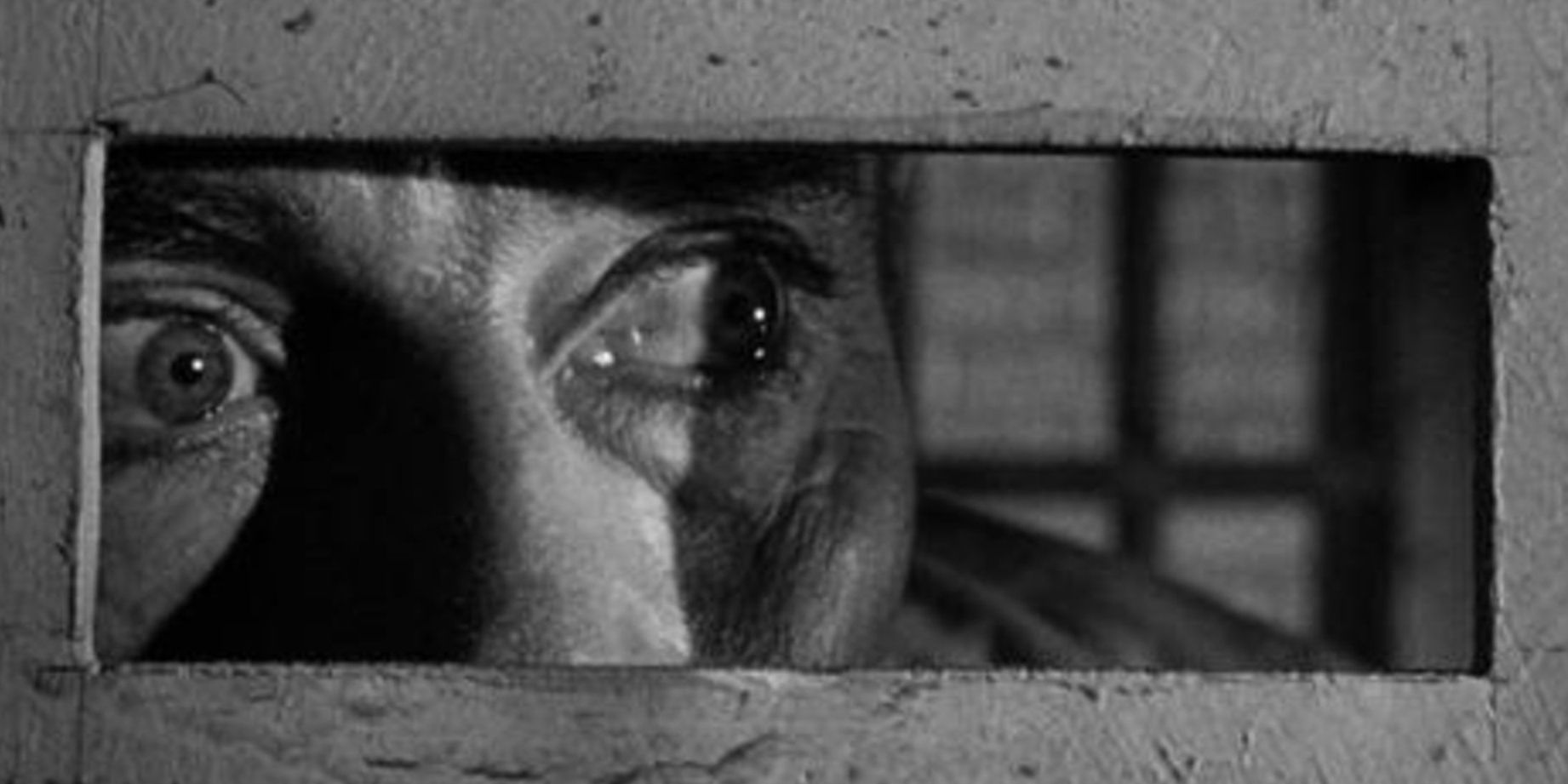The Big Picture
- The Wrong Man is a powerful critique of the justice system, highlighting the fallibility of human judgment.
- Director Alfred Hitchcock sheds his signature suspense and realism to create a raw, unsettling portrayal of mistaken identity.
- Henry Fonda's vulnerable performance as Manny Balestrero resonates deeply, reminding us of our vulnerability and the fragility of our sense of security.
Alfred Hitchcock is a cinematic icon whose innovative techniques have transformed cinema forever. Whether it's the iconic "dolly zoom" shot in Vertigo or his groundbreaking definition of modern-day horror in Psycho, Hitchcock has earned his place in film history as a master storyteller. He is renowned for his suspense, a technique he believes emotionally engages viewers with the story on the screen. Likewise, in front of the camera, few actors have carved their names as deeply into the silver screen as the legendary Henry Fonda, with his late-career Oscar win crowning it all. The collaboration between these two giants of their respective crafts resulted in one of the most beautifully woven films, the underrated 1956 thriller The Wrong Man. Beyond being a captivating movie, The Wrong Man represents a significant point in Fonda's artistic journey, unraveling his compelling portrayal of an ordinary man thrust into extraordinary circumstances.
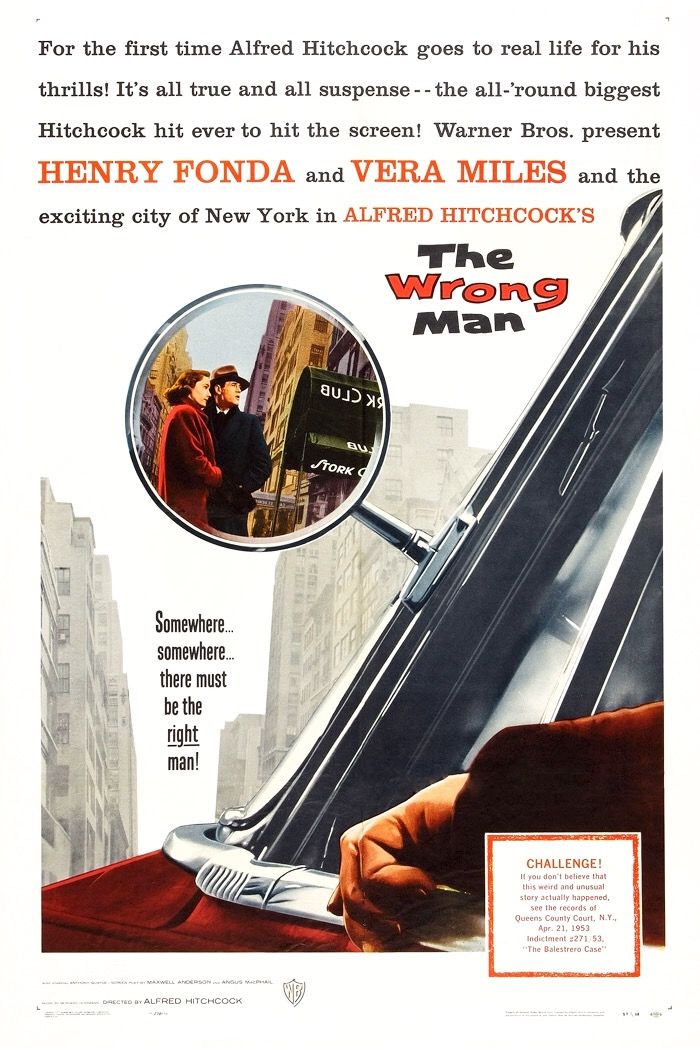
The Wrong Man
In 1953, an innocent man named Christopher Emanuel "Manny" Balestrero is arrested after being mistaken for an armed robber.
- Release Date
- January 26, 1957
- Director
- Alfred Hitchcock
- Cast
- Henry Fonda , Vera Miles , Anthony Quayle , Harold J. Stone
- Runtime
- 105 minutes
- Main Genre
- Drama
- Writers
- Maxwell Anderson , Angus MacPhail
What Is Alfred Hitchcock's 'The Wrong Man' About?
Based on a true story, The Wrong Man is a condemnation of the sometimes-ailing justice system. Fonda plays Christopher Emmanuel "Manny" Balestrero, an ordinary man whose luck has run out and who faces a spate of unfortunate events. Manny is a musician playing in an uptown New York nightclub, and a family man with a wife, Rose (Psycho's Vera Miles), and two sons. The film opens with Alfred Hitchcock, or his double, in a beautiful cinematic double-silhouette, explaining how different this movie is from all his other films. "The big difference is that his story is true," Hitchcock says of Fonda's Manny Balestrero. And yes, The Wrong Man was Hitchcock's first and only fact-based story. It was also the only time Fonda and Hitchcock collaborated.
Manny Balestrero, an ordinary, honest, and upright man struggling to make ends meet, faces yet another challenge when his stay-at-home wife, Rose, needs $300 for emergency dental expenses. Manny doesn't have that kind of money. He has been in debt before, and he confesses to Rose that it won't be different this time around. Rose feels that she is responsible for their woes, as their previous debts also resulted from situations surrounding her. But this time, it goes a notch higher. Having exhausted his loan options, the never-giving-up, good husband, and family man Manny finds a potential solution by utilizing Rose's insurance plan as security for a loan to cover the expenses. Manny visits a life insurance policy for the loan, and, unfortunately, a worker at the insurance office mistakes him for a robber who wreaked havoc in the facility before. Consequently, Manny is arrested and charged with robbery. The Wrong Man is a movie that understandably makes you angry at how the justice system is susceptible to turning in ''the wrong man.''
Henry Fonda and Alfred Hitchcock Switch Up Their Styles in 'The Wrong Man'
The Wrong Man isn't your typical Alfred Hitchcock film; the master of suspense throws open the doors to a raw, unsettling reality. Like he promises at the beginning of the film, it is not a suspenseful movie, but more a mystery. He is after the chilling fallibility of the justice system, shared through the eyes of Henry Fonda's Manny. And to navigate this uncharted territory, Fonda brings a palpable sense of vulnerability to Manny. To tell this true story, Hitchcock ditches his usual tricks and goes for a plain, realistic style that matches the seriousness of the real events. Still, his genius shows in how he cleverly plays with the camera angles. Tight close-ups make us feel as trapped and desperate as Manny Balestrero. The music by Bernard Herrmann adds to the tension, sounding cold and distant. It's still Hitchcock, but different.
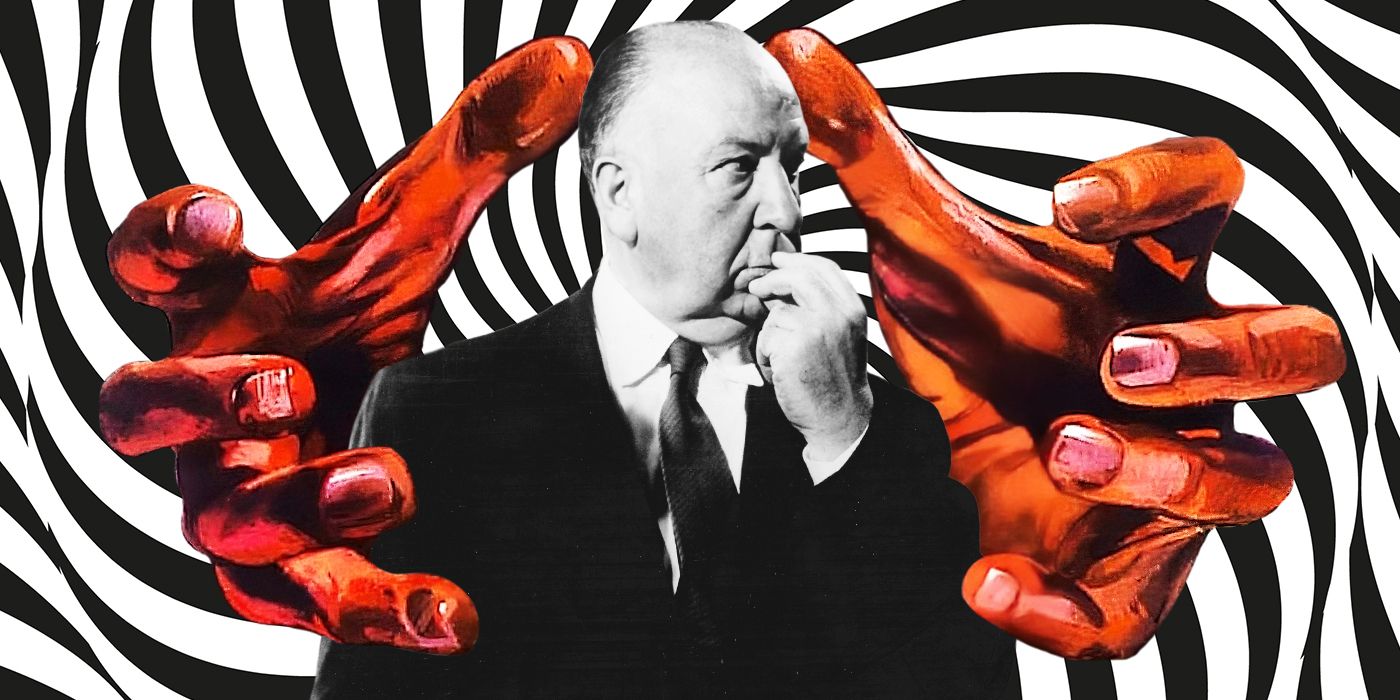
The Explosive Movie Ending That Alfred Hitchcock Regretted
The Master of Suspense felt that he crossed a line with the shockingly brutal conclusion to this 1936 thriller.The Wrong Man buries the brave heroes Henry Fonda usually played. In Fonda's career-loving quest for justice, he is on the other side — he is neither a helpless observer of mob justice like Gil Carter in The Ox-Bow Incident nor is he the heroic Juror 8 in 12 Angry Men. He certainly isn't the young brave lawyer in Young Lincoln when the young Abe he plays saves yet another accused from mob justice. In The Wrong Man, Manny Balestrero is the victim, just an ordinary guy stuck in a crazy situation like something out of a bad dream (think Kafkaesque, but way scarier). Fonda's phenomenal acting reveals a character who's scared, confused, and good-hearted. Despite not being your typical hero, he surprisingly stays strong even amid all the chaos.
Perhaps drawing from his childhood experience where he witnessed mob justice, Fonda's portrayal helps highlight how desperate Manny feels as everything seems to crumble right before his eyes. Even though Manny Balestrero is powerless and vulnerable, Hitchcock's directing keeps audiences on the edge of their seats. Hitchcock manages to tell the story of a character who isn't in control of his destiny, which makes you all the more empathetic for Manny, especially when thinking about being in his shoes. Seeing The Wrong Man is like reversing roles, where, as a viewer, you are helplessly witnessing injustice against Fonda, a man who has worn those shoes many times. Even though Hitchcock didn't think this was one of his best films, which could be attributed to the fact that it is not his typical style, The Wrong Man deserves more attention. It's a powerful, uncomfortable story with brilliant acting and directing.
Alfred Hitchcock's 'The Wrong Man' Is Based on a True Story
The Wrong Man is based on the true story of Christopher Emmanuel Balestrero, a regular guy going about his day-to-day activities to provide for his family. According to the New York Post and as depicted in the movie, the real-life Manny Balestrero, a nightclub double-bass musician in New York, tried to borrow money from his wife's life insurance plan to pay for her dental work. However, two employees at the insurance office mistakenly identified him as a robber who had hit them twice the previous year, stealing a total of $271. This led to Balestrero's wrongful arrest while on his way home after work and, consequently, his wife's deep depression, as she felt responsible for his troubles. Hitchcock's choice to film The Wrong Man in the real places where the events happened to Balestrero, like the Stork Club where Balestrero was a musician, the jail he was put in, the hospital where his wife went, and even the insurance office where he tried to get a loan, added to the intensity and realism of the true events in the film.
As per the New York Post, Balestrero sued the city of New York and the insurance company for $500,000 because of what happened to him, but the matter was settled out of court for $7,000. Despite selling the film rights to his story for $22,000, most of the money went toward paying back loans he took out to cover his wife's hospitalization. He didn't gain much financially from the film adaptation. His wife Rose, though depicted in the film as having recovered from the depression following Balestrero's mistreatment, never fully recovered in real life, though she was discharged from the hospital facility. It is reported that the producers of the film felt that The Wrong Man was too dark and wanted to lighten up things a bit, hence the inclusion of the text at the end of the film stating that Rose recovered from her depression.
'The Wrong Man' Questions the Justice System
Alfred Hitchcock has given us some of the most chilling tales of psychological horror and genre-bending fictitious pictures, but The Wrong Man is different. Here, the legendary filmmaker offers a more terrifying tale of an erring justice system. Together with Fonda, they question what justice is, and whether it has been served simply by legally vindicating someone who was wrongly accused. Following what Fonda's Balestrero went through, The Wrong Man asks, "Was Manny Balestrero really exonerated by the justice system when he has lost so much?" The movie is about the devastating impact of one simple mistake, and the subsequent layers of inefficiency. As the real-life Balestrero was quoted in a 1953 Life Magazine interview, The Wrong Man seems to say, “Before you accuse anyone, you should think, because you can destroy a family, physically and mentally, like mine could have been destroyed.’’
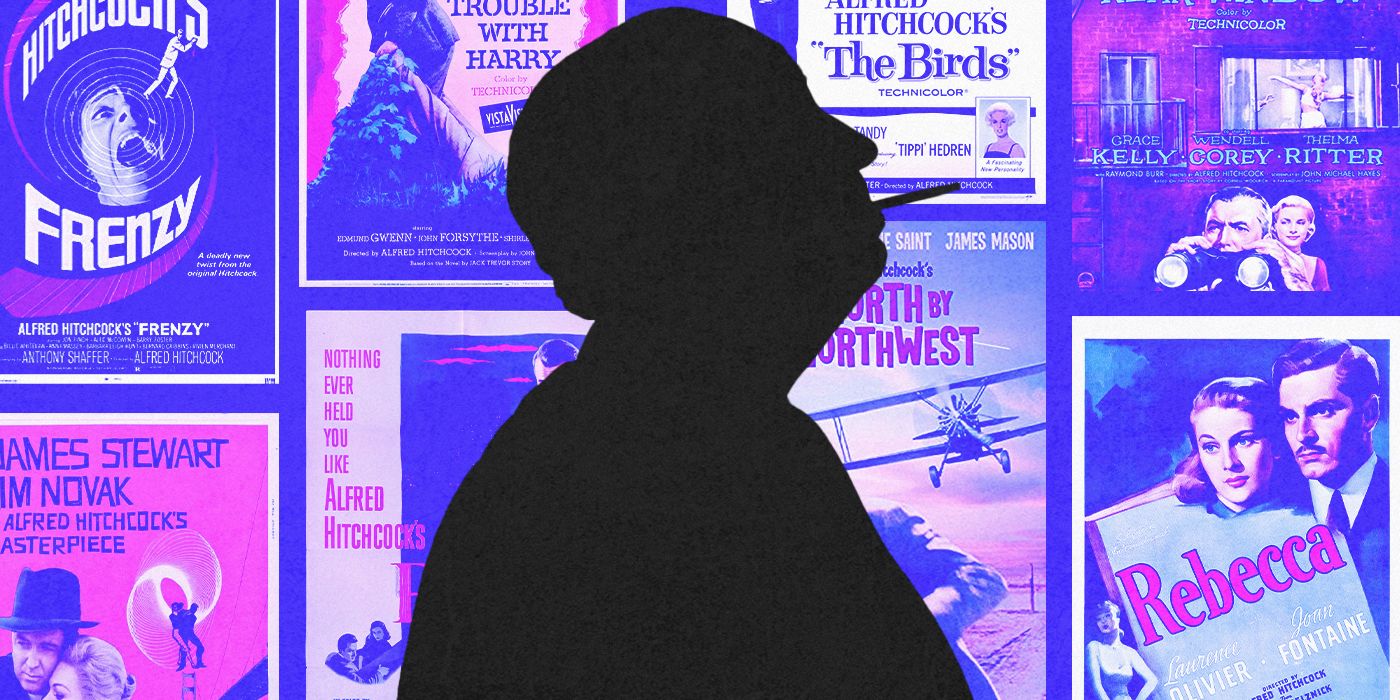
Alfred Hitchcock Didn’t Like His Only Best Picture Winner
Hitchcock did not dream of Manderley.The film asks hard questions about various levels of the justice system. Did the police do enough to investigate Balestrero's unfortunate events? Given Balestrero's mistrial as called out by a juror, are the courts helping to remedy the situation? The Wrong Man exposes the legal system's bureaucracy and detachment, prioritizing procedure over truth. Hitchcock's docu-realism film is a social commentary depicting the real-world consequences of a flawed system.
While The Wrong Man deviates from Hitchcock's usual style, it still bears his signature in its daring approach to adapting a true story for the big screen. His docu-realism camerawork, coupled with the haunting score, immerses us in Manny Balestrero's chilling ordeal. Henry Fonda delivers a career-defining performance as the besieged everyman, showcasing a depth of vulnerability rarely seen in his expansive filmography. As Rose, Vera Miles adds further layers to Manny's character with an equally understated yet powerful performance. The Wrong Man is a thought-provoking experience that lingers in the gut long after the credits roll. The knowledge that it's based on real events amplifies its impact, making The Wrong Man a cinematic gem.
The Wrong Man is available for rent on Prime Video in the U.S.

